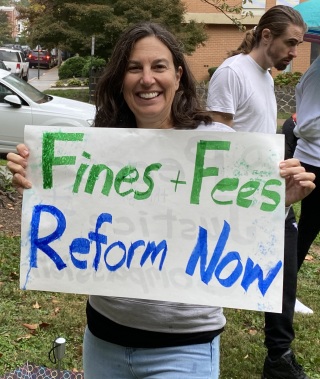CEDP’s long-term goal is to eliminate all court-imposed fees and assessments in order to end the cycle of poverty they create and to establish a reliable source of income for the government functions currently funded through fees and assessments.

Current efforts fall into three areas:
Implementation of HB 244
This bill was passed by the Delaware General Assembly and signed by Governor John Carney in 2022. This effort is being led for CEDP by its co-coordinators—Lynne Kielhorn and Meryem Dede—in collaboration with state courts and representatives of Governor Carney’s administration.
Participation in the Criminal Legal System Imposed Debt Study Group
This Group was created by HB 244 to review the impact of court-imposed financial obligations on defendants and victims and will recommend ways to promote access, fairness, and transparency in the imposition and collection of court-imposed financial obligations. CEDP is represented in this work by Lynne Kielhorn and Tanya Whittle.
Development of additional legislation to address issues not covered by HB 244
CEDP’s current focus is working with ACLU-Delaware to eliminate fines and fees as a barrier to expungement and working with first responders to eliminate fees that support their work, replacing those fees with sources of more reliable revenue.
Find out how you can take action with our campaign!